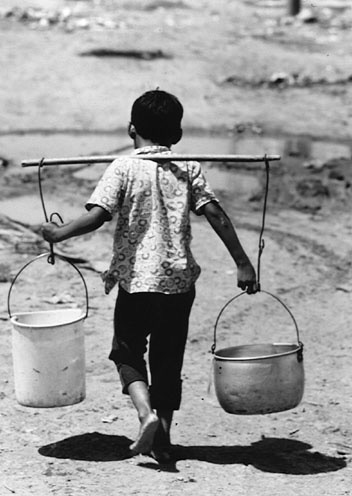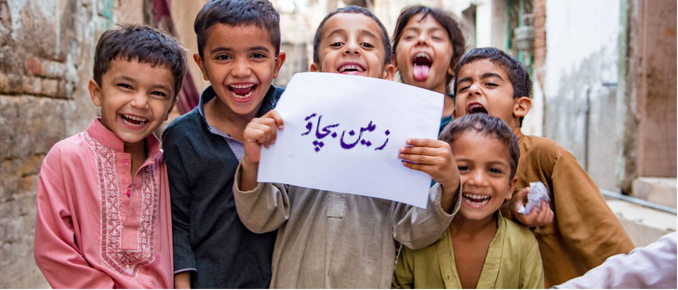In 2021, the United Nations’ IPCC (Intergovernmental Panel on Climate Change) released a report that Secretary-General Antonio Guterres referred to as a “code red for humanity.” The Asia Pacific region, in particular, is facing disastrous increases in floods, storms, heatwaves, droughts, and deadly air pollution. The code red is certainly being witnessed now in its full force.
Pakistan climate vulnerabilityWe must account for the unequal impact of climate change around the globe on the most vulnerable communities, concentrated in the Global South. Of these, Pakistan is currently among the worst-faring in regard to the climate crisis. In 2020, the New York Times referred to Pakistan as the “fifth most climate-vulnerable nation in the world.” The Climate Risk Country profile, a joint study conducted by the World Bank and Asian Development Bank earlier this very year, concluded that Pakistan is facing an increasing rate of annual warming, even greater than the global average.
“Code red for humanity” is the stark warning from UN Secretary-General António Guterres, reflecting the grave message from the IPCC on our climate emergency. This phrase underscores the urgent crossroads we face—where our choices will determine the future.
It is a clarion call to all nations, leaders, and individuals to step up and take immediate, bold action to combat this global crisis and protect our world for generations to come.
Impact of Climate Change on Children in PakistanWith climate now a frontline crisis, we must consider the group affected most harshly by present and future disasters: children. Children are the group most dangerously affected by related issues such as air pollution, the fifth leading cause of early death worldwide. At present, 99 out of the 100 worst-polluted cities in the world are in the Asian region. While being the worst-affected community, children also make up the most marginalized and hold the least say in policies related to a crisis that is and will continue to affect them in times to come.

Urgent Need for Climate Change Education in Pakistan
Without immediate action to create more aware and empowered children in Pakistan, the possibility of maintaining a livable world for them is very bleak. So how can this be achieved? Key investments need to be made in children’s strategic education and investment on climate change and its related issues in a modern context. The introduction of mandatory climate change education at a state and private level has now become a necessity to implement.
These should ideally be structured according to the IPCC’s findings on modern-day and urgent climate-related issues plaguing the Asia Pacific region and Pakistan, along with sustainable development solutions to work towards a green revolution. Even the most well-reputed educational institutions at the secondary or even higher level in Pakistan do not yet offer any in-depth study of modern environmental issues and sustainability, especially in a localized context.
It is imperative for the state, perhaps the Ministry of Climate Change, to work alongside schools to categorize climate education with different levels of depth according to age groups of children. This should include the basic science of modern climate change and sustainable alternatives, as well as the humanitarian and political side, that of governing bodies and climate-related policymaking, including the Sustainable Development Goals.
Climate Change Initiatives in Pakistan
Small steps are certainly underway as of late in Pakistan. In June 2021, the Ministry of Climate Change announced its partnership with Save the Children Pakistan in launching its Red Alert campaign about climate change and environmental conservation in the country. On the last World Environment Day on June 5, hosted this year by Pakistan, some of the country’s own efforts were highlighted. These included the 10 Billion Tree initiative to restore mangroves, forests, and plant more trees in urban areas. So, it is not to say that Pakistan’s efforts have gone amiss, but in light of the most recent IPCC report and the lack of children’s representation, a more targeted plan must be made. Inclusive and informative activities for children should become more widespread and regularly convened at a national level for state and private schools.
Red Alert Campaign in Pakistan
Red Alert’s Climate “ARTivism Competition” has showcased itself as a best practice. Creative activities, for children under 17, that are also informative are a great way to bring young minds’ attention to climate-related issues of the day. Campaigns of writing and research, art, music paired with activism are easily implementable steps to further this initiative. Local organizations such as ‘Climate Action Now’ have already been successfully piloting youth-led climate marches in Pakistan. Collective initiatives with such bodies could uplift one very important way the youth can take initiative: informed activism.
Pakistan is facing an increasing rate of annual warming, even greater than the global average

A Call to Action for Youth in the Climate Change Battle
More than anything, similar campaigns, activities along with formal education should now teach children their rights to demand their own protection as the future generation. Climate change is an immediate humanitarian crisis for children as much as it is a political and scientific one for policymakers. As the future generation who will more than any other be subject to its effects, education of all levels in Pakistan must now raise the flag on climate justice for children. Creating a livable planet for today’s children will begin only with informing and including them in the fight against climate change.
زمین بچاٗو
ہم سب جس سیارے پر رہتے ہیں وہ زمین ہے۔زمین واحد
سیارہ ہے جس پر زندگی ہے۔
زمین نے ہمیں بہت سی چیزیں دی ہیں۔
The writer is an author and can be reached at farhanfiza202@gmail.com







